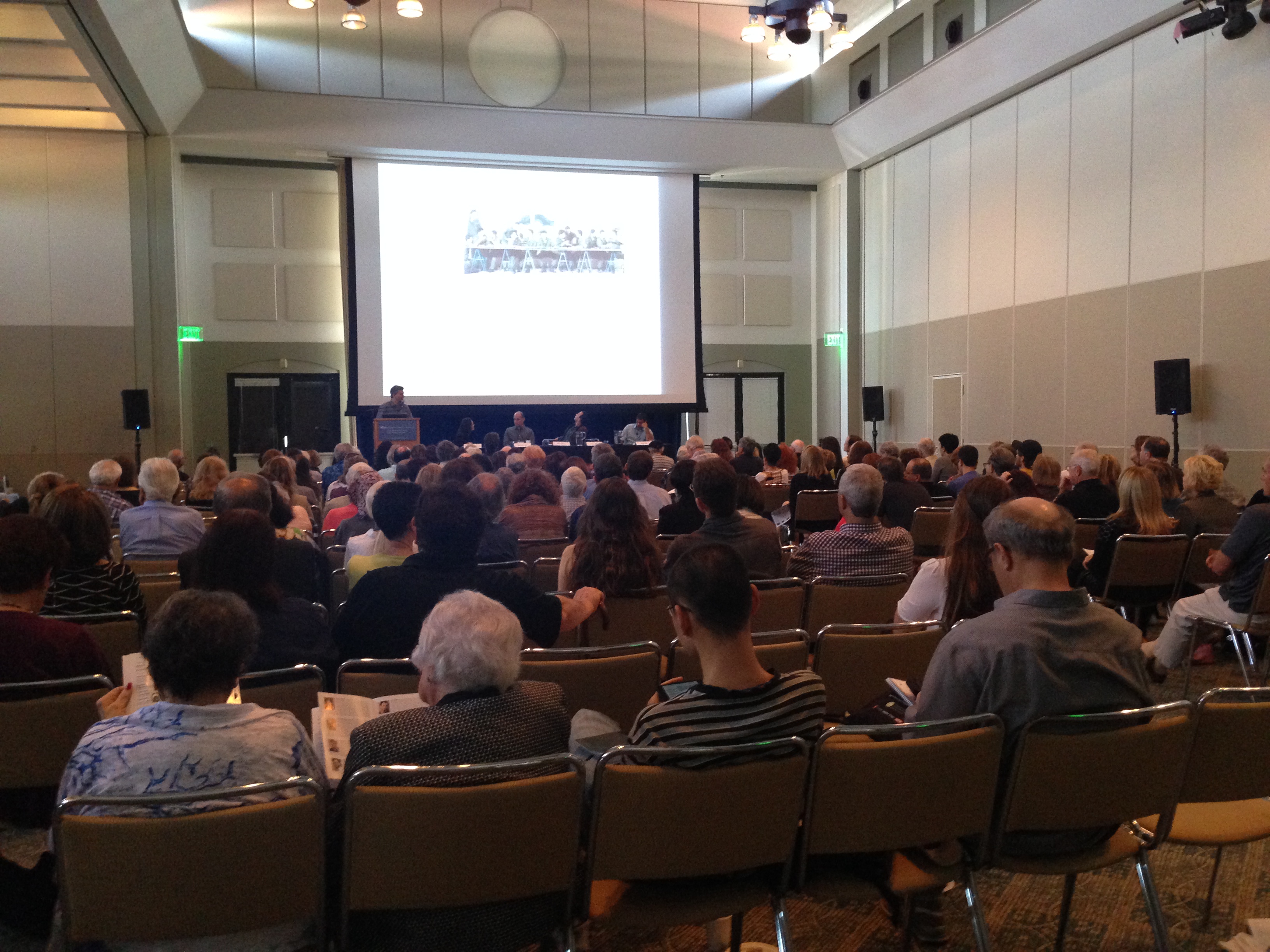I love Israel. You love Israel. We all love Israel — but in order not to descend into childish song and let the discussion end there, it is necessary to educate ourselves about the nation we love so much. For that reason, on Sunday, May 4, the UCLA Younes and Soraya Nazarian Center for Israel Studies hosted their third annual “Israel in 3D,” a one-day university exploring the many dimensions of Israel. The event mainly attracted prominent Jewish and/or Israeli leaders, community members, and potential donors, with a few students eyeing each other shyly in the mix.
The day began promptly at half past nine, thereby adhering to the notion of Israeli standard time and shaming early arrivals who assumed the morning would begin no later than 9 a.m.
Sharon Nazarian, chair of the Y&S; Nazarian Center Advisory Board and president of the Y&S; Nazarian Family Foundation, welcomed the attendees by saying, “This day is special because we all get to share what the center does with the community and offers the Los Angeles community both inside and outside campus. This is a place of safety — nothing cannot be discussed.”
Neil Netanel, the interim director of the Y&S; Nazarian Center for Israel Studies and professor of law at UCLA, followed up Nazarian’s remarks by adding that he hoped to discuss issues in a “dispassionate, educated manner, which is not always the case on campus.” His comment evoked some mild chuckles and murmured agreement from the crowd.
Israel in 3D derives its name from the three distinct sessions titled “Start-up Nation”: Is the Success Sustainable?, Israeli Arts and Entertainment: Now Playing on the Global Stage, and “Israeli Judaism”: The Jewish Renewal Movement in Israel. During the first session, Netanel acted as moderator while panelists discussed their startups and experience in the tech industry. One of the panelists was a young woman named Yael Vizel, a close friend of Hillel at UCLA’s own Israel Fellow, Yair Vardi. Vizel is the founder and CEO of Zeekit, an online start-up company in the fashion industry. Her technology allows users to upload photos of themselves in order to sample how various outfits and accessories would look on their body types. Vizel embarked on the fashion technology industry after working for five years as a semiconductor (computer chip) designer for Elbit Systems in Israel. With a degree in electrical engineering from Technion, Israel Institute of Technology, Vizel was also the first female commander of the Israeli Air Force’s elite tech unit. Besides being a general badass, Vizel is deeply connected to her Jewish heritage. She told the crowd the story of her grandfather from Transylvania, who was the only one in her family to survive the Holocaust. Vizel’s grandfather told her to do three things and to do them well: “Protect yourself, study hard, and build a family.” For this reason, when Vizel was originally placed in the tech unit over a combat unit, she was dismayed: “I didn’t want to do computer stuff in the IDF, I wanted to protect my country.” At the time, Vizel did not realize that she could do both — and excel beyond her wildest expectations.
Following the first session, Anat Gilboa, visiting professor of art history for the Y&S; Nazarian Center for Israel Studies took the stage, acting as moderator for the panel on Israeli art and entertainment. Artistic mediums ranged from TV and film to visual art, dance, and even novels. At the conclusion of the second session, lunch was served on the patio, complete with linen napkins, ice water, and an array of sandwich options.
Finally, keynote speaker Ambassador Dennis Ross entered, to a far more packed room than was originally vacated before lunch. He spoke about turmoil in the middle east, wondering if a deal is possible between Israelis and Palestinians. After the address, Ross sat down with Dalia Dassa Kaye, the director of the Center for Middle East Public Policy and Senior Political Scientist for the RAND corporation. Last but not least, a panel moderated by Jewish Journal president David Suissa rounded out the day with a discussion of Jewish renewal movements in Israel. Despite the lack of 3D special effects or two-toned glasses, the Y&S; Nazarian Center for Israel Studies managed to pull off an effective teach-in highlighting just three of the numerous worthy dimensions of the state of Israel.

